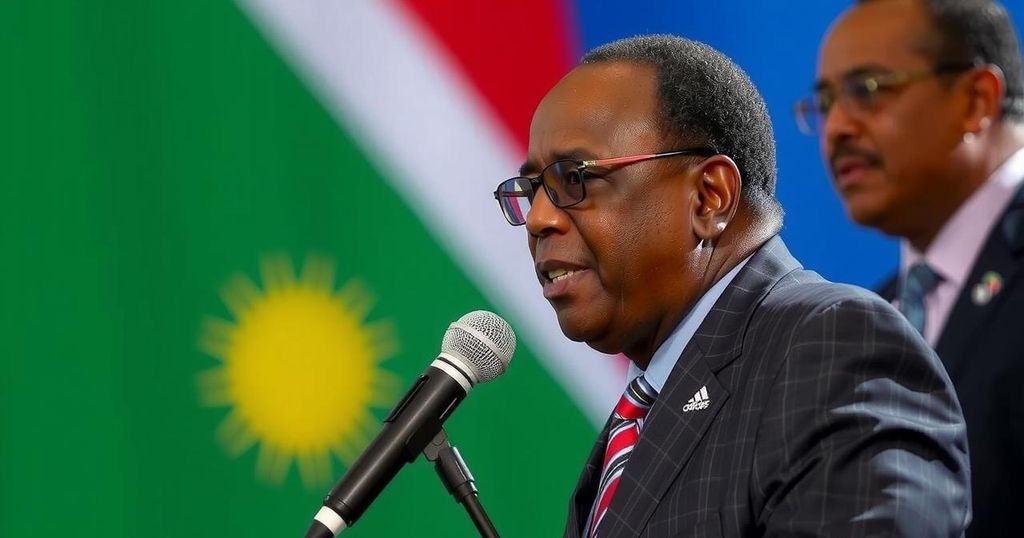Botswana’s ruling party, the Botswana Democratic Party (BDP), faces a potential loss of its six-decade rule, as early tallies show the opposition Umbrella for Democratic Change (UDC) leading with 19 seats in recent elections. Growing discontent over unemployment and governmental mismanagement are driving this political shift, presenting challenges for the impending new government.
In a significant political shift, early election tallies indicate that Botswana’s ruling party, the Botswana Democratic Party (BDP), is poised to lose its long-standing dominance in national politics. Preliminary results from the recent elections, held on Wednesday, reveal that the BDP, led by President Mokgweetsi Masisi, has only secured a single seat in the national legislature thus far. This marks a dramatic change, as the BDP has governed Botswana since its independence in 1966. The left-leaning Umbrella for Democratic Change (UDC) party, led by Duma Boko, has emerged as a major contender, winning 19 seats according to early counts. Additionally, two other opposition parties, the Botswana Congress Party and the Botswana Patriotic Front, have obtained seven and five seats respectively, collectively securing a total of 31 out of 61 parliamentary seats, which could potentially result in the formation of a new government. The election holds particular significance as it reflects growing public dissatisfaction with the current administration, primarily due to high unemployment rates, currently at an alarming 27%, alongside economic mismanagement. President Masisi’s tenure has faced criticism over issues such as corruption and inequality, which compounded frustrations leading up to the election. Notably, the UDC’s success in local council elections further indicates a shift in voter sentiment away from the BDP. Duma Boko, who founded the UDC in 2012, expressed a strong desire for change, citing the electorate’s yearning for a departure from the status quo. With the election results expected to be confirmed by the Independent Electoral Commission, Masisi’s party appears unlikely to reclaim the majority needed to retain control. Overall, this electoral outcome could signal a pivotal transformation in Botswana’s political landscape, presenting both challenges and opportunities for the incoming leadership as it grapples with pressing economic issues and public demands for reform.
Botswana, often heralded for its stable governance and diamond-driven economy, is witnessing a transformative moment as its ruling party faces potential eviction from power after nearly six decades. The BDP, historically the principal party since independence, confronts a burgeoning discontent among the electorate, rooted in socioeconomic challenges such as rising unemployment and corruption allegations. As employment rates hit a staggering 27 percent, particularly impacting youth demographics, the call for governmental change has become increasingly pronounced. The emergence of the UDC, a coalition of opposition forces, encapsulates this demand for a fresh political approach, challenging the long-held status quo.
In conclusion, the early election results herald what could be a significant political realignment in Botswana, posing challenges to the ruling BDP and signaling a potential shift towards opposition-led governance. The UDC’s popularity underscores a rising public demand for accountability and better economic management. As the new government, likely to be formed by opposition parties, steps in, it will need to address the pressing issues of unemployment, economic diversification, and governance reform to fulfill the electorate’s expectations of change.
Original Source: www.france24.com






